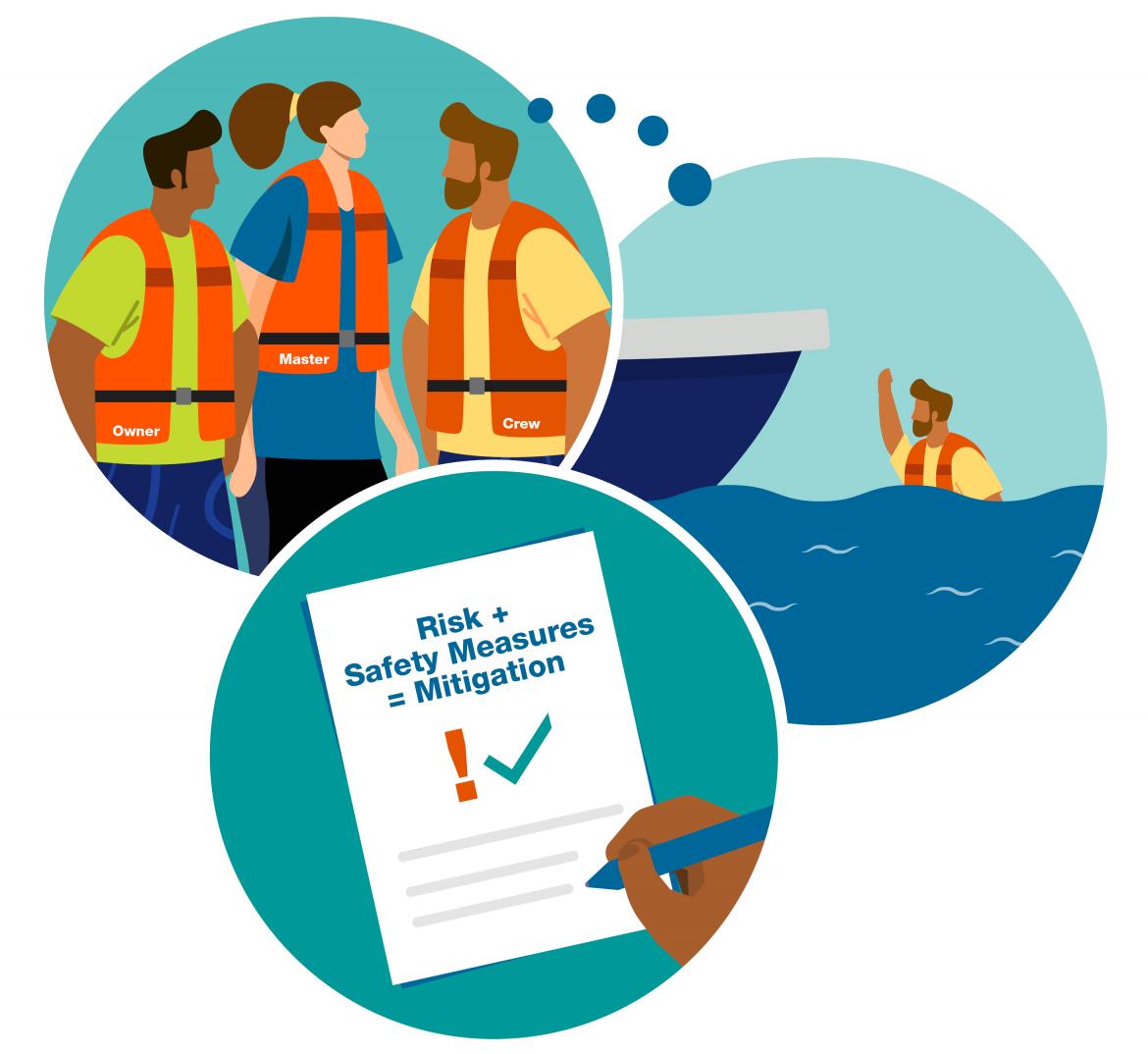We held risk assessment workshops in Queensland for commercial fishers.
These free in-person workshops provided information and guidance on lifejacket wear requirements that must now be addressed in your safety management system’s risk assessment in accordance with the revised Marine Order 504 (Certificates of operation and operation requirements - national law).
We recognise that every fishing operation is unique, as is the circumstances under which you should and shouldn’t be wearing a lifejacket, and if so, what type will be the safest option. That’s why we wanted to enable you to identify these as part of your risk assessment.
Each workshop focused on a selected fishery or fisheries and consider regional factors. They helped fishers work together to determine what works best for each type of operation. Their aim was not to cover every fishery in every port, but to sample a range of different fisheries, fishing techniques, crewing arrangements, vessel types, voyage lengths and environments.
The outcomes of these workshops will be made available to other commercial vessel operators to look at when planning their own risk assessments.
Why it’s important we meet with you
In addition to helping you meet new risk assessment requirements, we recognise that the risk of going overboard, and drowning is a serious safety issue in commercial fishing.
From July 2013 to the end of 2022, there were 46 fatal drownings from domestic commercial vessels in Australia. Of these, 30 were from commercial fishing operations and most involved situations, such as a person overboard, where a lifejacket could have helped save someone’s life.
We want to talk with you about the importance of appropriate lifejacket wear and how having an effective risk assessment can reduce risks to you and your crew. We will update you on recent changes to safety management system requirements and other safety measures and look forward to meeting you to answer any questions you have.
Register to attend Note: Registrations now closed.
The workshops were held in Queensland from September to December 2023. They were about 90 minutes long.
The workshops were scheduled around fishery closures and tailored to the different fisheries, factoring in the different environments and equipment used.
We strongly encourage you to register before your selected workshop. However, you can also register on the day. Early registration helps us organise the workshops.
Note: we strongly encourage you to register to attend before the workshops. If you miss the chance to register, you are still welcome to come along on the day.
Early registration helps us organise the workshops.
Past events
- Townsville, East Coast (North) Trawl, 2pm, Monday 18 December 2023
- Ayr, East Coast Net and Mud Crab, 1pm, Tuesday 14 November 2023
- Bowen, Coral Reef Line and Spanish Mackerel, 2pm, Monday 13 November 2023
- Mooloolaba, Oceanic/Spanner Crab, 2pm, Friday 3 November 2023
- Karumba, Gulf of Carpentaria Inshore Net and Mud Crab, Thursday 12 October 2023
(part of the Gulf of Carpentaria Commercial Fishermen’s Association Annual General Meeting) - Bundaberg, East Coast (South) Trawl, 10am, Tuesday 26 September 2023 (registration closed)
- Mooloolaba, East Coast (South) Trawl, 10am, Wednesday 27 September 2023 (registration closed)
- Thursday Island, Torres Strait Tropical Rock Lobster, 2pm, Wednesday 4 October 2023 (registration closed)
Attend our workshops to learn about:
- what to consider in your risk assessment for lifejacket wear
- lifejacket options, such as manual and water activated
- how to choose a lifejacket that fits you and your fishing operation
- other safety requirements, such as incident reporting, planned maintenance and managing the risk of fatigue.

- Improve your risk assessment to make sure your safety management system is effective.
- Reduce the risk of injuries and deaths.
- Access our training and support to help you ensure your commercial fishing operation is safe.
- Talk about risk assessment ideas and concerns with others in the industry.